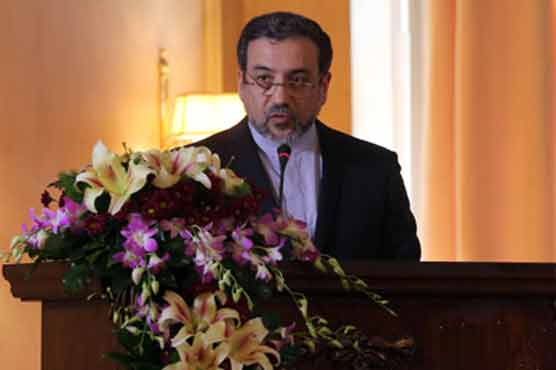Iran seeks new UN approach over nukes

Chief negotiator called Monday for a new approach in relations between Tehran and the UN.
VIENNA (AFP) - Iran s chief negotiator in discussions with world powers on its nuclear drive called Monday for a "new approach" in relations between Tehran and the UN atomic agency.
"We think that it is time to take a new approach to resolve questions between Iran and the IAEA," Abbas Araqchi said in Vienna before a meeting with International Atomic Energy Agency chief Yukiya Amano.
Iranian negotiators are holding a series of meetings in Vienna this week meant to the lay the groundwork for substantial progress in new talks with the so-called P5+1 group in Geneva next month.
Stressing that Iran s nuclear programme was "peaceful and which will always be peaceful," Araqchi told reporters that he hoped the UN watchdog "can play a very constructive role to ensure that the world remains peaceful".
Amano said the talks were a "very important opportunity" and that it was "very important for all of us to show concrete progress".
The IAEA regularly inspects Iran s nuclear activities and Western countries want Tehran to allow the watchdog to keep an even closer eye on its activities.
This would enable the IAEA to better detect any attempt by Iran to "break out" and produce highly-enriched uranium for an atomic bomb, and to inspect suspected secret nuclear sites.
But Monday s talks between Amano and Araqchi are mainly focused on allegations that before 2003, and possibly since, Iran conducted research work into making an actual nuclear weapon.
The agency has been pressing Iran to allow it to probe these claims, rejected by Iran, since a major IAEA report on these suspected activities almost two years ago in November 2011.
The agency held 10 fruitless meetings between early 2012 and May 2013 but the latest on September 27, the first under new Iranian President Hassan Rouhani, was praised by the IAEA as "very constructive".
Since coming to office Rouhani has raised hopes that parallel talks with world powers can result in a deal than would limit Iran s nuclear activities and so ease Western fears that the Islamic republic wants the bomb.
In response Iran wants painful UN and Western sanctions eased and threats of military action from Israel, itself widely thought to have nuclear weapons, silenced.
Iran s Foreign Minister Javad Zarif in September held a landmark meeting with US Secretary of State John Kerry during the UN General Assembly, and US President Barack Obama and Rouhani also held a historic phone call.
Then in Geneva on October 15-16, Iran presented to the five permanent members of the UN Security Council plus Germany (the P5+1) a new proposal that Araqchi said could settle the dispute "within a year".
On Wednesday and Thursday, a seven-member expert Iranian team will meet in Vienna with counterparts from the six powers to prepare the groundwork for a second meeting in Geneva on November 7-8.


